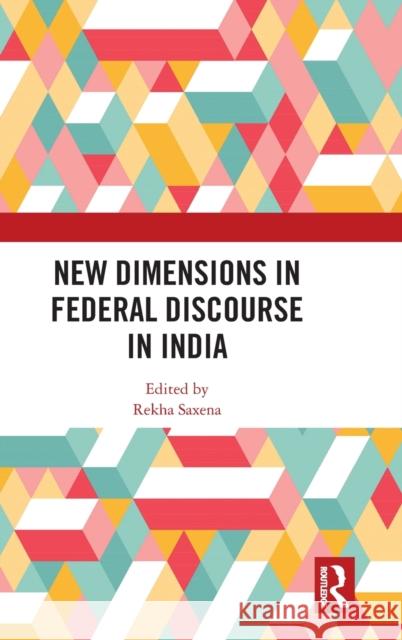New Dimensions in Federal Discourse in India » książka
New Dimensions in Federal Discourse in India
ISBN-13: 9781138361508 / Angielski / Twarda / 2020 / 218 str.
New Dimensions in Federal Discourse in India
ISBN-13: 9781138361508 / Angielski / Twarda / 2020 / 218 str.
(netto: 720,05 VAT: 5%)
Najniższa cena z 30 dni: 654,86
ok. 16-18 dni roboczych.
Darmowa dostawa!
This book explores hitherto unaddressed dimensions in federalism studies in India. It traces continuities and changes in Indian federalism since independence and especially economic liberalization. Beginning with the 1990s, due to the emergence of multi-party system, coalition governments, change in judicial temper and the onset of privatization and globalization in the economy, there has been a trend towards greater federalization in India. However, in the context of one-party majority in a coalition government since 2014, new aspects have emerged in Indian federalism. The volume engages with several facets of federalism: administrative federalism; environmental and resource federalism; changing dynamics of fiscal federalism; and multi-level governance. With comparative data and case studies across different states of India, it brings together a range of issues, including Article 356 and its dysfunctions; land acquisition; decentralized governance; tribal rights; the roles of central and state governments; concerns regarding Citizenship Amendment Act; recent abrogation of Article 370 and 35 A; Delhi and statehood; climate change; MGNREGA; implementation of ICDS and the cooperative and competitive nature of Indian federalism. Comprehensive and topical, this book will be useful to scholars and researchers of political science, federalism, comparative federal studies, political studies, comparative politics, public administration, governance and development studies. It will also interest policy makers, bureaucrats, government organizations, NGOs, and civil society activists.











